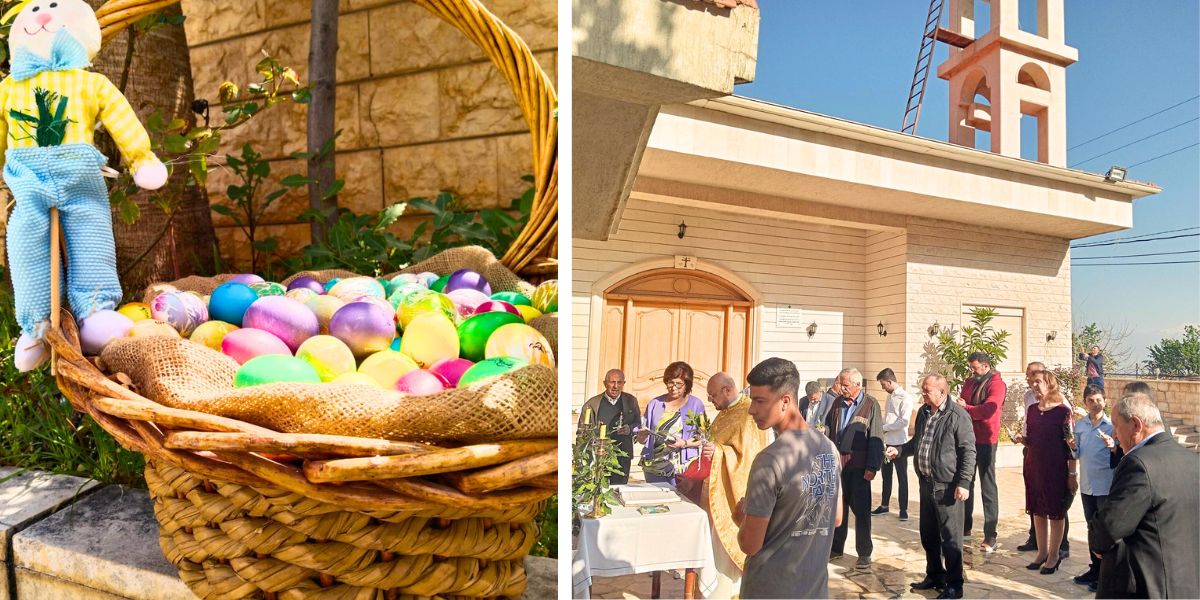It is in all old cultures, not only ours, to have sayings and proverbs which we inherit in our communication through generations.
Meant to be wise teachings of the elders who used parables to make their points, some could also mean nothing much other than the meanings we give them with time.
We can easily realize it, and how ridiculous some are, only once we take a mindful halt to think if what we are saying makes any sense, really.
At that point, it is just smart to discriminate between the wise ones, the silly ones we must reconsider, and the ones we must totally discard for good. Let’s jump into some of ours:
#1 We taught them how to beg, they raced us to the gates
Basically, it doesn’t mean what it says. This is not about the skill of begging and conning. It is used by a Lebanese when he or she feels being duped or outsmarted by someone who has learned the trick or know-how from him or her. In brief, the person turned the learned trick on his/her ‘teacher’.
#2 Do good and throw into the sea
Now, about that! A saying that was cut off in time from its original complete sentence, it has brought us to believe that it’s about “don’t mind if the goodness you give is not appreciated. Keep giving anyway.” Wrong teaching, people, for the wisdom is: Don’t pour olive oil in a broken jar.
The original saying continues with “if it is not appreciated by the ungrateful, it will be appreciated by God.” In that, I do agree, but I also stand that our giving should be done with wisdom, for a Lebanese proverb of ours also says: In akramta el-la’eema, tamarrada -If you give generously to the wicked, he will rebel against you.
P.S. Don’t you ever throw anything in the sea unless it’s your fishnet.
#3 Like a deaf man at a wedding procession
Wedding processions (zaffeh) in our part of the world are so boisterous that they can’t be unheard by all the neighborhood, let alone a person at the zaffeh unless he/she has a hearing problem. So when we say of someone Metel el-attrash bil zafeh, we simply mean that he or she refuses to listen whatever we say.
#4 He/she who gossips to you will gossip about you
Kind of true and unarguable really. A wise piece of caution that holds its truth. There is a difference between relaying a story to a friend and talking with malignancy. So, if a friend of yours tends to gossip to you, be wise and don’t enable him or her by listening and engaging in that type of chit-chat.
#5 He who wants to eat honey should endure the stings
It’s true that we don’t need anymore to collect our honey right from the beehive to eat it. But the parable holds its good truth, which is conveyed in this saying to encourage a person to persevere in his or her aim despite the hardships involved.
Basically, it means “if you want to enjoy the outcome, you have to endure the hard work.” In the words which I personally use, “Consider the thorns when aiming for the roses.”
#6 You spit on his face and he’ll tell you it’s raining
It isn’t a nice one, really, and it isn’t to be taken literally. The saying tebzo’ aaleh w b-elak aam b-tchatteh describes what a coward would do when aggressed: He or she will avoid confrontation to the point of qualifying the hostile act as a good thing (rain has always been deemed a blessing in our culture).
#7 Better a thousand-time coward than one time “may he rest in peace”
Another saying regarding cowardice but this one is used by the person who wants to avoid confrontation or putting himself or herself at risk. Basically, when the one accused of being a coward says Alf marra jabehn w wala marra Allah yerhamo, he or she means, “I better be told that I am a coward a thousand times and not once that I am dead.”
Kind of smart, if you ask me. Not all risks or confrontations yield good outcomes, and not all are worth tackling.
#8 The wound hurts only at its spot
This is not about a medical condition, friends. After all, any doctor can tell you that a wound could hurt beyond its spot and could have nasty consequences. The saying el-jereh ma byoojaa ella bi mahallo is used to express the intensity of one’s moral or emotional pain when others are not really understanding its scope. Literally, it translates into: “No one can feel the real pain as the wounded person.”
While this is true, it remains that those who have experienced similar pain do understand it and can empathize.
#9 His/her day will come
Vague as it sounds in English, and deeply insinuating in our language, this expression jeyyeeh yawmo or yawma, which we often use, speaks of karma, and also of a bitter wish that the person who has harmed us would come to pay for it one day.
In brief, it translates into: The day will come for the perpetrator to pay. Kind of leaving it to fate to take care of it because we couldn’t, but also a wise caution against retaliation.
#10 Hit the water with water
I’ve always found this one funny while growing up in Lebanon because the expression in Lebanese is actually deq el may may, which translates into “hit the water, water.” It makes no sense but does make a good point. Hitting water with water yields to nothing other than more water.
So when it is said about someone who can’t get what he or she is being taught repeatedly, the saying applies, nastily yes, for it isn’t cool to say it, considering that we might not be such a good “teacher” after all.
#11 He who dug a trap for his brother fell into it
A famous proverb, not just a pop-culture saying, Man hafar fekhan li akhehe, waqaa fihi also speaks of karma yet not in the longterm. It is believed that one eventually gets trapped in his or her own scheme to harm a person, for “he or she who plays with fire burns his/her hands” as we also say in Lebanon: El bylaab bil nar biyehro ideh.
#12 The beating by a loved one doesn’t harm
Now, hold on there! I do have a big problem with this one. Darbet el habib ma biye’ze is an awful thing to say, let alone believing that it’s true. It encourages abuse and submission to abuse, for any type of beating is offensive, physically, morally and emotionally.
This saying is to be totally eradicated from our minds and talks, for those who truly love can’t possibly harm their loved ones.
#13 Every incident has its conversation
This saying is not really about conversations but about cautioning not to fret and worry ahead of time about potential future problems. When we say Kel hadeth ello haditho, we do mean: “We deal with the issue in its time.”
However, this saying has been also used as a threat or warning when we admonish someone not to do a certain matter and he or she defies us with “And if I do?” And we to answer “Kel hadeth ello haditho” as in: “Try and we’ll see.”
#14 He/she can’t differentiate his/her elbow from his/her mouth
Right, it makes no sense, even to us in the Lebanese language: Mesh fehem koo’oo’ min boo’oo’, where boo’oo is the vulgar term for an open mouth. I guess you got that it is used to discredit a person we deem feeble-minded, even if it isn’t necessarily true. (nasty, this one).
#15 He punched me and cried, he preceded me and complained
You got this. We use it when someone did us harm and then went to complain that he or she is the victim. Darabneh w bakah, saba’neh w chtakah has a nice rime to it, which gives it a light tone that indicates the absence of bitterness.
#16 At his form/shape, formulate him (?!)
Seriously, this is one of those funny-ly rhymed Lebanese adage that can’t be possibly translated literally, but I couldn’t miss sharing it with you because of how funny it sounds.
When we say 3a shaklo shakshiklo, we actually mean to say, in a belittling way, that a person gets together with the people of his/her type. It carries the same meaning of the English saying “Birds of a feather flock together.”
#17 We got confused, O bald head, where to kiss you!
You got to give it to this one, sounding as it says and saying not what it means. Basically, Ehtarna ya ar3a min weyn badna nboussik expresses our frustration when a person shows dissatisfaction at something good we’ve done for him or her. It basically means, “Whatever good we do for you, it is the same with you!”
#18 After my donkey, may no weed grow
Bluntly said, “I don’t care about others as long as I am getting what I want.” Min baad ehmari ma yenbot hashish is meant to say: “Let my donkey eat all that it needs from the field even if it nothing will ever grow again in there.”
It is a totally selfish expression. It also befits the careless stance we take when we cause damages to our environment while ripping its benefits to our individual enjoyment.
#19 Ask an experienced person and don’t ask a doctor
One of the oldest Lebanese sayings, ess’al emjarreb w ma tess’al hakeem is often used by us when trying to convince someone on a matter that we have already experienced, and not necessarily about healing a certain ailment. Basically, it argues that the know-how acquired through hands-on experience is crucial and must be heeded.
Needless to say, if you are sick, please go consult your doctor!
#20 Follow the liar at the doorstep of his home
Don’t take it literally and go prey on people! The saying elhaq el kezzeb a3 beb da’ro means only to advise you to keep making valid points with the person who’s lying until he or she slips up and reveals (or admit) the truth.
It is an expression we also use to address directly the person once his or her lie is uncovered during the argument.


































